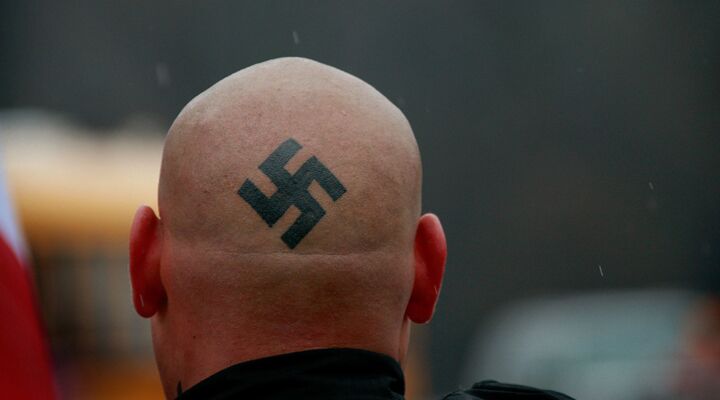
Germany’s Neo-Nazi Flash Mobs
You’ve probably heard about the flash mob phenomenon erupting across America. It’s a frightening trend, one in which dozens or even hundreds of people, usually teens, gather spontaneously and seemingly out of nowhere, to rob a store, trash a gas station, or simply wreak havoc.
It seems Germany is also experiencing flash mobs, although these aren’t your everyday American flash mobs.
They’re neo-Nazi flash mobs—and they are becoming ever more popular and happening with increasing regularity.
The New York Daily News reported this week that a “German neo-Nazi group has been harnessing 21st century technology to stage terrifying flash-mob protests that echo the fascist torch rallies of the 1930s—and then make them go viral” (emphasis mine).
If you haven’t seen it already, check out the cnn video report on these neo-Nazi gatherings. It’s creepy: “They appear in the middle of the night, unannounced and armed with torches, their faces hidden behind plain white masks. It is frightening scene that resembles the Nazi torch marches of the 1930s.”
Berlin professor, Hajo Funke, is alarmed by this increasingly popular group, which calls itself “The Immortals.” According to Funke, the organization tries to appeal in particular to young people. Its message is “mystical” and radical. They tell people, “We are already killed, and we are killed by the system, by black ones, Muslim ones, Jewish ones,” explains Funke. The organization hates multiculturalism and routinely calls for the destruction of Germans supporting multiculturalism.
“It’s a racist idea, an apocalyptic idea,” says Funke.
According to German officials, the Immortals and the flash mobs they initiate (generally via text message and Twitter) are a serious and growing concern. The organization has been banned in a few states, and others are trying to do the same. But it’s unlikely this will do anything to solve the problem.
This is because a growing number of Germans are attracted to the anti-Semitic, deeply racist, neo-Nazi ideals espoused by the Immortals and others like it. Truth is, we can expect more neo-Nazi flash mobs. As Europe’s financial crisis worsens, putting the German economy and government under greater pressure—and stirring the frustration and resentment of the German public—radical and dangerous extremist groups like the Immortals will become more and more popular. In this sense, it will be much like Germany in the 1930s.
Disillusioned by financial uncertainty and political ineptitude, the German public will soon go in search of a new leader. They will look for someone strong and decisive, a person with the personality and character to withstand these tempest times, someone with a healthy dose of nationalism who is willing to put Germany, and the German people, ahead of Europe and the rest of the international community.
Someone, perhaps, like Adolf Hitler.
